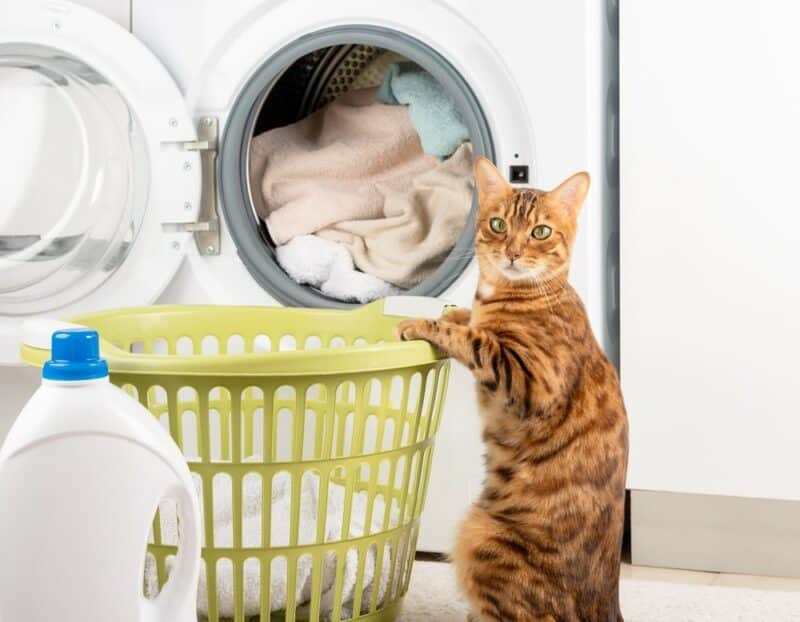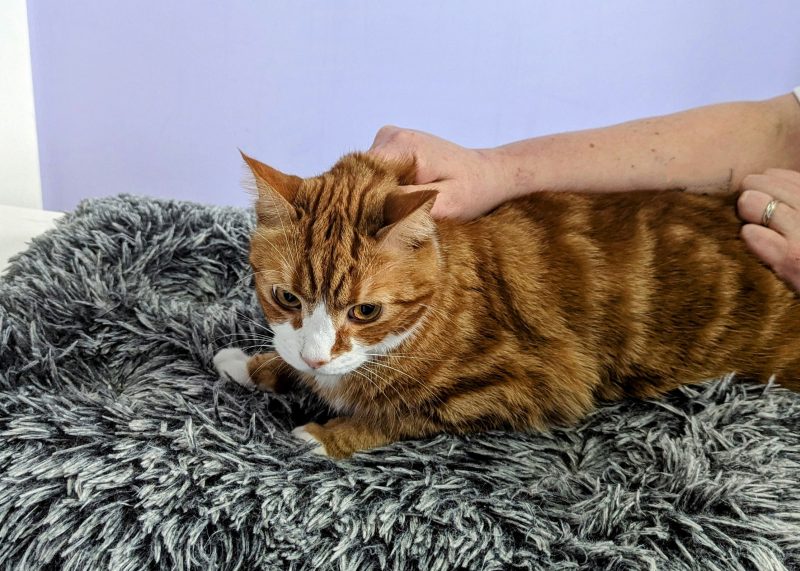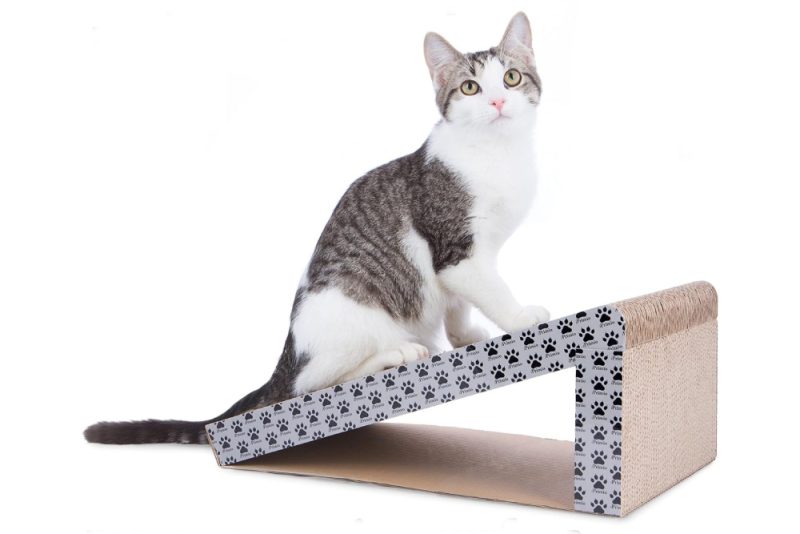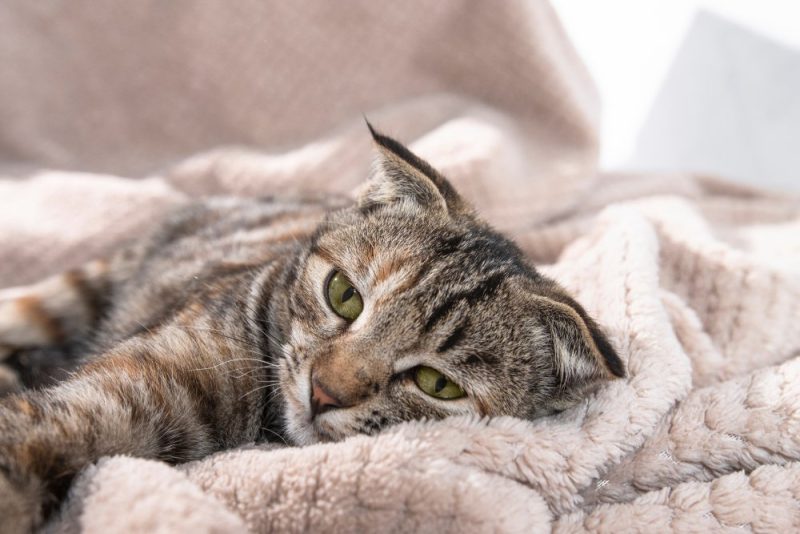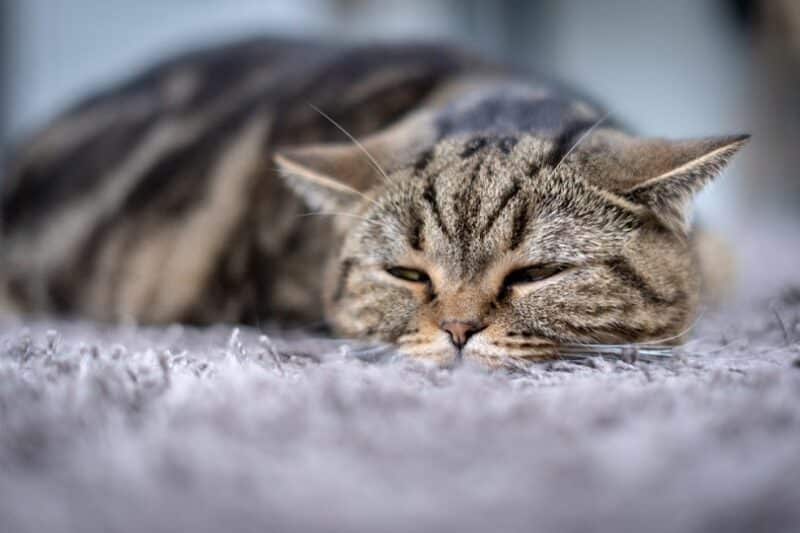British Shorthair cats are sweet, round-faced beauties known for their loyal personalities and muscled bodies. While gray British Shorthair kitties often get the most attention, these cats come in shades of black, golden, and even smoke. They’re also usually very large, with males weighing up to 18 pounds.
They’re loving, mellow, and loyal, but are they hypoallergenic? Unfortunately, the answer is no; British Shorthair cats aren’t hypoallergenic. But then, technically, there’s no such thing as a hypoallergenic kitty! Some breeds are often recommended as good options for allergy sufferers, but British Shorthair cats aren’t one of them. Read on to learn more about cats and allergies.
 Wait, Hypoallergenic Cats Don’t Actually Exist?
Wait, Hypoallergenic Cats Don’t Actually Exist?
Yes, you read that correctly. There’s simply no scientific foundation for the claim that hypoallergenic cats exist. Most people with cat allergies react to a protein called Fel d 1, commonly found in feline saliva. Cats bathe themselves using their tongues and distribute the Fel d 1 protein through their fur. Protein-laden fur and dander accumulate around the house as cats shed. Some cats induce fewer allergic reactions in people, but all cats produce the Fel d 1 protein.

Are There Certain Breeds That Tend Cause Fewer Allergic Reactions?
British Shorthair cats are not hypoallergenic. But two groups of cats often create fewer problems for those with allergies: hairless kitties and cats that naturally produce less of the Fel d 1 protein. Sphynx cats either don’t have fur or have a very light coat, reducing the amount of Fel d 1 that sticks to them. They’re often considered the go-to breed for allergy sufferers.
Devon Rex kitties typically have light dustings of fur and often cause fewer allergic reactions than other cats. Cornish Rex cats have wiry coats and don’t shed much, reducing the amount of Fel d 1 released around them. Siberian and Balinese cats may naturally produce less of the protein, making them potentially good (but not confirmed safe) choices for allergy sufferers.
Are There Ways to Manage Cat Allergies?
Frequent vacuuming and air filter changes can limit the amount of dried saliva and dander floating about, reducing the chance of an allergic reaction. Regular vacuuming can help keep protein-soaked dander from accumulating in your home. Many people find HEPA air filters to be particularly helpful when it comes to managing their cat allergies.
Carpet Removal
You can remove allergen-grabbing carpets if possible—tile, linoleum, and hardwood floors are far better for allergy sufferers (and easier to keep clean). Also, you can use damp cloths to pick up dust from surfaces since dry dusting releases tiny dirt particles into the air.

Grooming
Daily grooming can minimize shedding, which often results in protein-laden fur making its way into every nook and cranny of your home. Many cats enjoy being brushed, and it can be a fun human-feline bonding activity. You can also give your pet an occasional quick rub down with a no-rinse shampoo to help remove some of the protein from their coat.
Cat-Free Space
Consider making your bedroom a cat-free space. Some people who are allergic to cats do just fine if they have an allergen-free sleeping area. Bedrooms often cause problems for allergy sufferers simply because of the number of places for dander and fur to hide and accumulate. So, keeping your cat out of your bedroom can make it easier to control and minimize your exposure to this particular trigger.
Bathing
Some people recommend giving your cat baths to reduce the amount of protein that accumulates on their fur. However, some evidence suggests that cats would require multiple weekly baths for effective allergy control, as cats can return to normal levels of dander shedding just 48 hours after a bath.
Regular weekly baths may be a challenging option, given the general feline distaste for participation in bath activities initiated by humans. Frequent bathing has the potential to dry out and irritate your pet’s skin. However, it’s possibly an option for a particularly challenging weekend, or whenever you need some respite from your allergens.
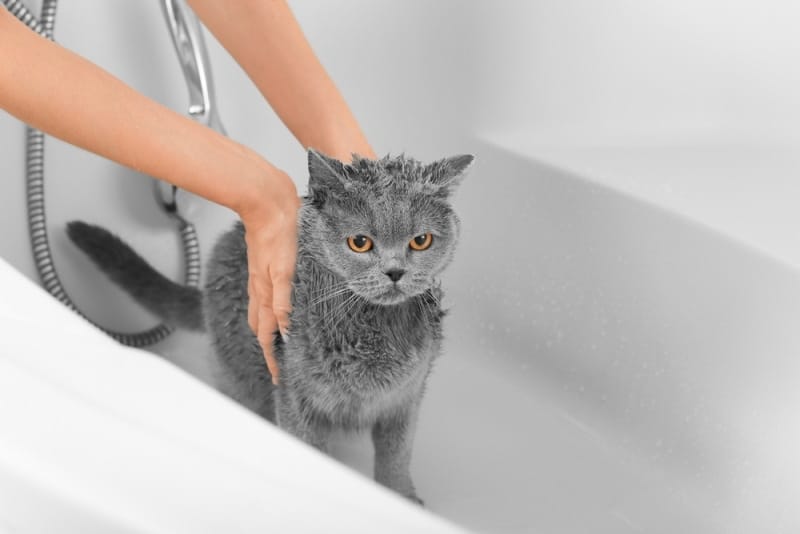
Allergy Medication
Allergy shots may provide relief for some people, but the process takes time. Over-the-counter antihistamines and nasal sprays can help relieve some symptoms, but most physicians caution against the long-term use of nasal decongestants. It is best to consult your physician before using any allergy medication.

So, Are British Shorthair Cats a Good Choice for Allergy Sufferers?
British Shorthair cats make wonderful companions. There’s a reason these former working cats regularly rank among the most popular pets in the United States and the United Kingdom. However, they may not be the best choice for serious allergy sufferers since they typically have thick, dense coats that allergen molecules can easily accumulate in.

A Friend Who Is Allergic to Cats Is Coming for a Visit! What Can I Do?
If a friend who is allergic to cats plans to come and visit for a few days, there are a few things you can do to reduce the chances they’ll have an allergic reaction while at your home. Start off by giving your house a really good cleaning. This might also be a scenario where giving your cat a bath may benefit your friend.
And don’t forget to deep clean those places where fur accumulates around the house, like baseboards and in the corners of rooms. Pay extra attention to the room where your friend will sleep. Vacuum extremely well and open the windows for ventilation if the weather allows. Wash all the linen you plan to use in hot water and keep your cat from entering the room where your friend will be sleeping after you’ve completed the deep clean.
 Conclusion
Conclusion
British Shorthair cats aren’t “hypoallergenic.” There’s no such thing as a truly “hypoallergenic” cat since all kitties produce the Fel d 1 protein responsible for most cat allergies. But some breeds tend to induce fewer reactions in allergy sufferers, including Sphynx, Devon Rex, and Balinese cats. Allergy sufferers might do better with one of these breeds as they tend to either produce less of the offending protein or provide fewer places for it to cling to. Allergy shots may offer long-term relief but often take a few years to work.
Featured Image Credit: PHOTOCREO Michal Bednarek, Shutterstock


